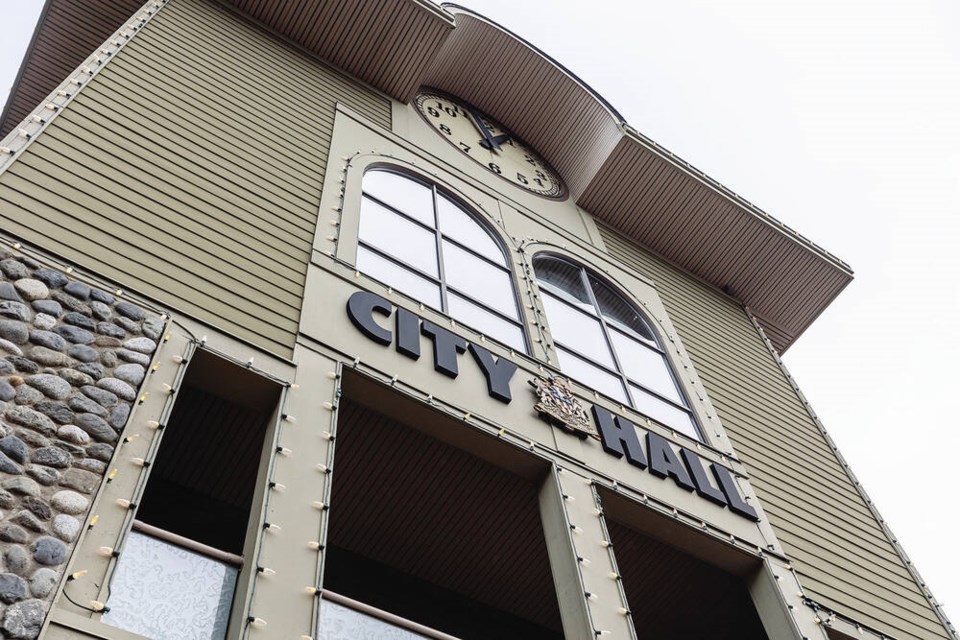Langford residents are facing the steepest tax increase in the city’s history after council decided this week to “rip the Band-Aid off” and stop using amenity funds to help pay for the increasing costs of services for the fast-growing community.
Council unanimously approved a 15.6% increase in property taxes for 2024 at its meeting on Monday night.
The initial plan last month proposed an 11.79% increase, but council voted to jack the rate even further after deciding not to use amenity funds to soften tax hikes now and into the future.
Previous councils had used the general amenity fund — money paid by developers and intended for public projects like parks and other improvements — to keep tax rates low for property owners.
Over the past decade, council said more than $10 million has been drawn from the amenity reserve fund to offset property-tax increases, a practice that Coun. Keith Yacucha described as “robbing from our children.”
“The budget as presented covers the costs of inflation, public safety with police and fire … it covers our bills that have been pushed off and I for one don’t want to keep pushing off for our children to pay,” Yacucha told council on Monday.
The 15.56% leap in property taxes follows a nearly 12% increase last year. The tax hikes have divided the community, drawing protests outside city hall and negative feedback during public-participation portions of council meetings.
Council will have first, second and third readings of its five-year financial plan and its tax-rate bylaw at its regular council meeting on April 16 and will consider adoption at its May 6 meeting. Residents will have a chance to voice their concerns on both nights.
Under the proposed five-year plan, the Langford property tax increase would drop to 11.19% next year and to 7.87, 7.99 and 4.89% through to 2028.
Yacucha said in an email Wednesday that with the initial proposal of an 11.79% increase, the average home would have seen a rise in property taxes to $2,342 annually, or $247 more than the previous year.
He said ceasing to use general amenity funds to subsidize taxes translates to another $80 yearly increase.
All of the councillors agreed in the end, though councillors Mark Morley and Mary Wagner and Mayor Scott Goodmanson expressed reservations about cutting off the amenity fund to offset taxes this year, preferring a more gradual reduction to reduce the blow.
There were also concerns about proposed new regulations introduced by the province in November surrounding the use of amenity cost charges.
On Monday, Coun. Kim Guiry introduced a motion calling for the municipality to start using the funds for sidewalk infill projects around schools.
Guiry’s motion to budget $1.4 million in 2024 and $1.85 million in 2025 for sidewalk infill directly around schools with funds from the amenity reserves was passed after staff noted the properties that are in need of infill sidewalks have no immediate plans for development.
Coun. Colby Harder said children and youth have to be able to walk safely to and from school.
Guiry noted that the $10 million taken from the amenity fund over the past decade to offset tax increases would have easily paid for all infill sidewalk projects in Langford.
“If we’re going to talk about how do we best address challenging times, we need to look at our residents as a whole when we have 30% of our [population] who are not property owners who still have needs,” said Guiry. “We can’t take away from one and give to the other.”
Guiry said her own family will feel the tax increases. She and her partner have a variable-rate mortgage on a house and live in the basement. “My mom is a senior who lives upstairs on a fixed income,” she said. “We can’t just increase her rent. We have a car we can barely afford. We don’t take vacations. There are things we just don’t do in order to live in such a beautiful place.”
Coun. Lillian Szpak said the proposed tax increase represents short-term pain for long-term gain, noting Langford’s population is growing and the need for services and protection is greater than it’s ever been.
According to staff, Langford’s tax rate remains one of the lowest in the region, with total residential property taxes and charges of $4,481 trailing only Metchosin ($4,260). Langford’s general municipal taxes ($2,342) are below the average of similar B.C. communities ($2,919).
“We don’t want to be kicking this cost down the road and costing our taxpayers of the future more as a result,” Szpak said. “We don’t want to be like the generous mom or dad who are living on credit and making sure that the kids have everything and more than they can afford and one day the truth comes out and everyone feels very badly because it’s just not sustainable.
“This is doing the right thing.”





